Contact Info:
+88 01601135050
[email protected]

Search engines have become indispensable tools in our daily online activities. They serve as gateways to the vast expanse of information available on the internet, helping us navigate through countless websites, articles, and multimedia content.
Whether we’re looking for the latest news, researching a topic, or searching for a local restaurant, search engines streamline our experience by providing relevant results within seconds.
Their ability to understand queries and deliver precise information has revolutionized how we access knowledge and connect with the world.
Today, I will share my favorite search engines that you may like. Without further ado, let’s dive into it.
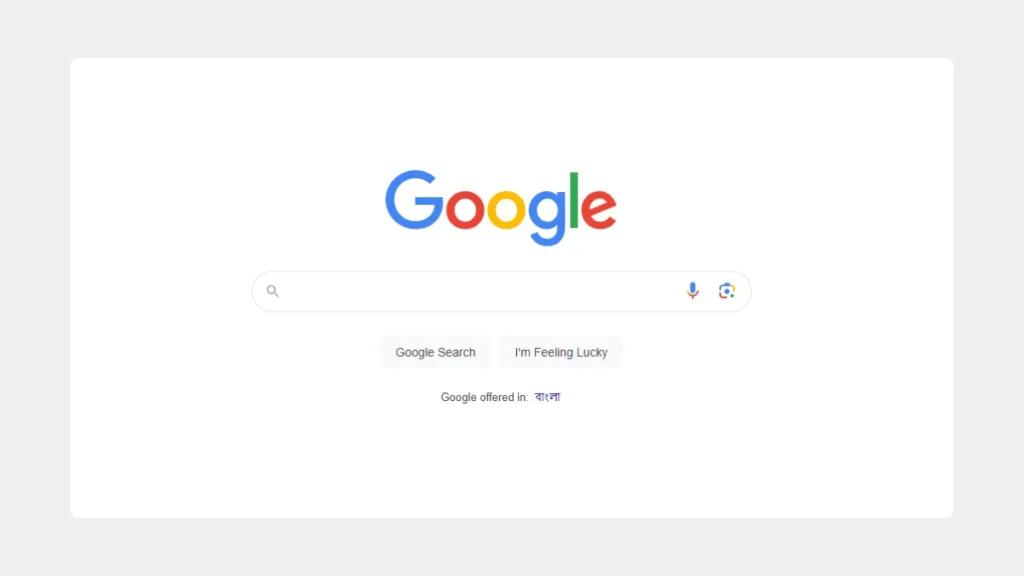
Google is the most widely used search engine, renowned for its robust features. From local search, which helps users find nearby businesses and services, to image search that allows for visual content discovery, Google caters to diverse user needs.
Additional features include Google Scholar for academic research, Google News for the latest updates, and Google Maps for navigation and location-based queries.
Google’s popularity stems from its superior algorithm, which delivers highly relevant search results quickly and efficiently.
Its user-friendly interface, regular updates, and integration with Google services like Gmail and Drive make it an essential tool for millions.
To get the most out of Google, consider using search operators. For example, using quotes (“”) around phrases searches for exact matches, while using a minus sign (-) excludes certain terms.
Exploring the “Tools” feature allows for filtering results by date, type, and more, enabling users to refine their searches effectively.
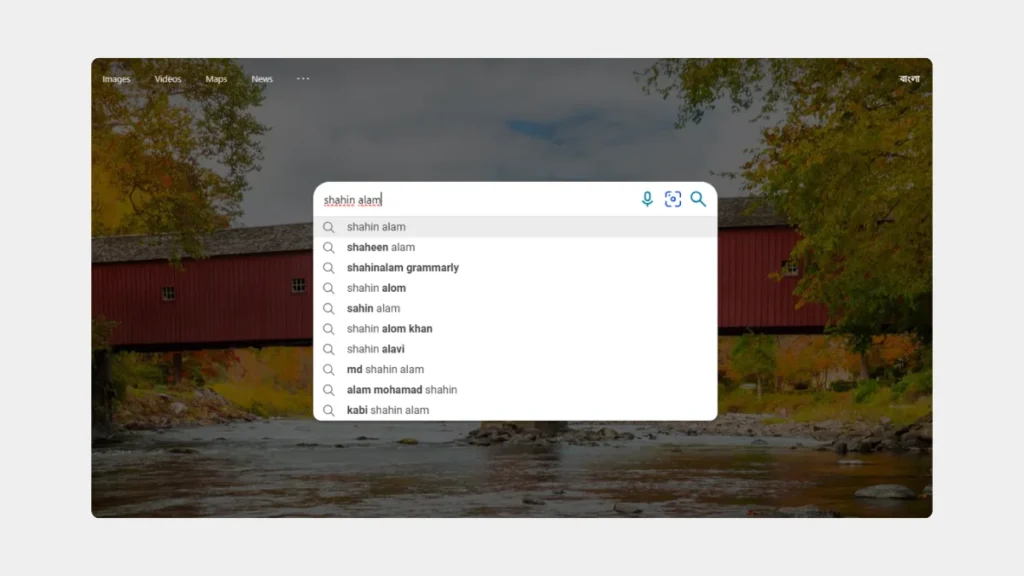
Bing stands out with its rewards program, which allows users to earn points for searches that can be redeemed for gift cards. It also features a robust visual search option, enabling users to search using images instead of text.
While Google often leads in speed and accuracy, Bing excels in specific areas like image search and video previews, sometimes delivering better-organized visual content.
Bing’s search results can vary in presentation, making it a refreshing alternative for users looking for a different experience.
Bing is particularly effective for users seeking visual content, such as images and videos.
It also provides an attractive experience for local search queries and often features rich snippets, enhancing the visibility of local businesses and services.
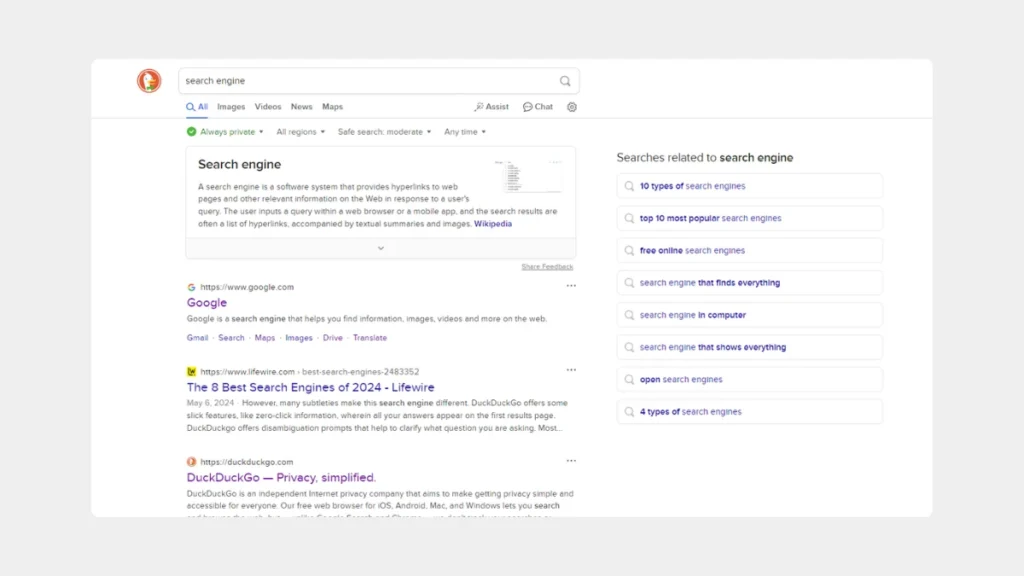
DuckDuckGo prioritizes user privacy, not tracking search history or personal information. This commitment resonates with users concerned about data privacy and surveillance.
DuckDuckGo includes features like “bangs,” which allow users to quickly search specific sites by starting their query with an exclamation mark (e.g., !w for Wikipedia).
It also offers an integrated instant answers feature for quick information retrieval without data tracking.
The primary advantage of DuckDuckGo is its robust privacy policy and user anonymity. However, it may not provide the same level of search result accuracy or comprehensiveness as Google, especially for niche queries.
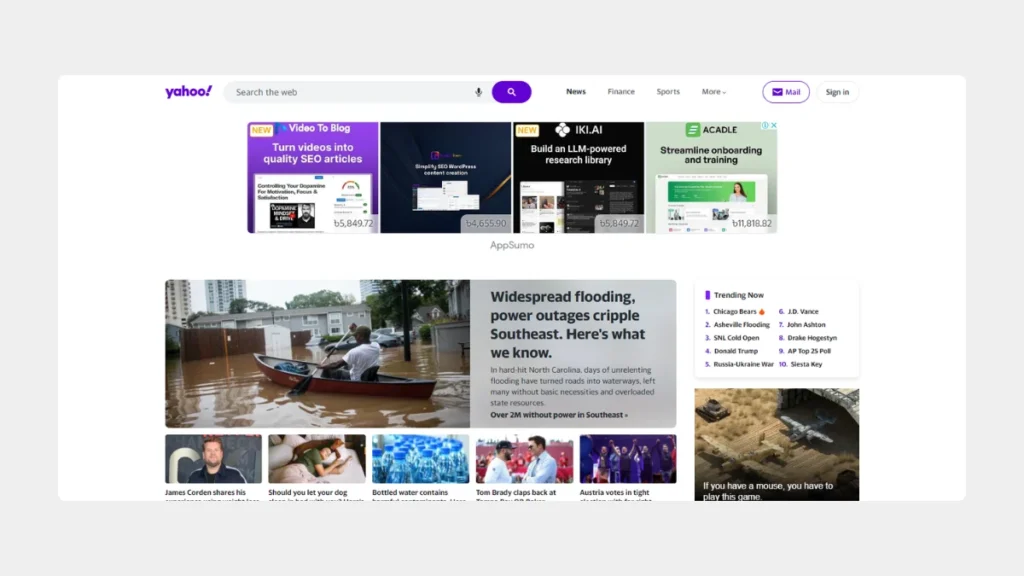
Yahoo isn’t just a search engine; it offers a suite of services, including news, finance, sports, and email. This multifunctionality makes it a one-stop shop for many users.
Once a leading search engine in the 1990s, Yahoo has evolved to focus more on content aggregation and personalized news feeds. Its current relevance lies in providing a broad range of services, appealing to users who prefer integrated platforms.
Yahoo’s target audience includes users looking for a combination of news, email, and search capabilities. It excels for those who prefer a comprehensive portal to access various online services seamlessly.

Ecosia is a unique search engine with a mission: for every search made, they plant trees. Their commitment to environmental sustainability sets them apart in the search engine landscape.
By using ad revenue from searches to fund tree-planting projects worldwide, Ecosia contributes to reforestation efforts, promoting ecological balance and combating climate change.
Ecosia offers a straightforward search experience similar to other search engines. While it may not be as fast or comprehensive as Google, many users are willing to compromise on speed for the environmental impact their searches generate.
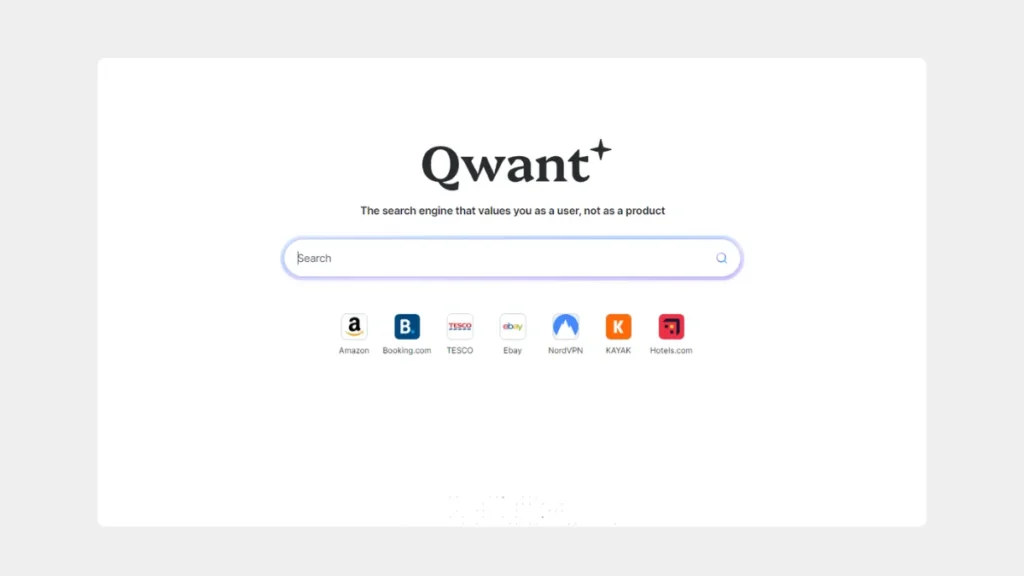
Qwant stands out for its strong emphasis on privacy, ensuring users’ searches remain anonymous without tracking or profiling.
Qwant presents search results in a visually appealing format, with sections for web results, images, and news. It also includes a “Qwant Junior” feature tailored for children, promoting safe and educational browsing.
The main advantage of Qwant is its commitment to privacy and user anonymity. However, it may not offer the same depth of search results as Google or Bing, making it less effective for certain complex queries.
You May Like: Why Does Your Business Need SEO?
Google is the most popular search engine worldwide, handling over 90% of global search queries.
Search engines use algorithms and bots (called crawlers or spiders) to index websites and deliver relevant results based on user queries.
Google is known for its powerful algorithms, speed, accuracy, and user-friendly interface, along with its integration with various services like Gmail, Maps, and Drive.
Some search engines, like Google and Bing, collect user data to improve search results and display personalized ads. Privacy-focused search engines like DuckDuckGo and Qwant do not track user data.
It depends on your preferences. Bing offers features like a rewards program and a strong visual search, while Google excels in speed, accuracy, and integration with other Google services.
Each of these search engines offers unique features and benefits, catering to different user preferences and needs.
Whether you prioritize privacy, user experience, or specific functionalities, there’s a search engine that fits your lifestyle. Explore these options to find the one that enhances your online activities!